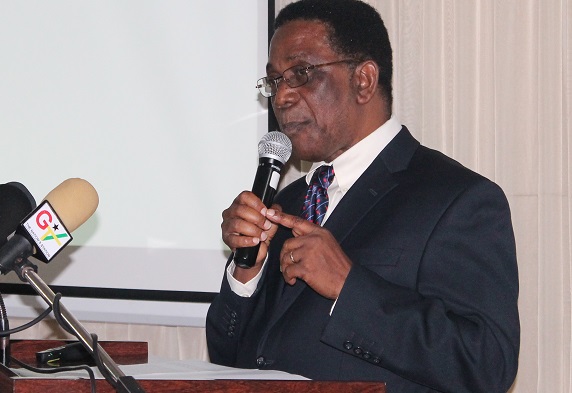
Submit fees, levies to Parliament for approval - Prof. Yankah tells vice-chancellors of public varsities
The Minister of State in charge of Tertiary Education, Professor Kwesi Yankah, has asked the vice-chancellors of Ghana to seek parliamentary approval through the National Council for Tertiary Education (NCTE) for proposed fees and charges they intend to collect from students.
Advertisement
He said over the years, the Fees and Charges Act 2009 (Act 793), which was amended by a Legislative Instrument in 2016, LI2228 had not been followed by heads of tertiary institutions, who had resorted to fixing fees and other levies without recourse to the law.
The Fees and Charges Act 2009 (Act 793), which was amended by a legislative instrument (LI2228), 2016 seeks to safeguard the public against arbitrary and haphazard charges and levying of students by universities.
Requirement of the Act
“The Act requires all vice chancellors to seek parliamentary approval for whatever fees and levies they intend to charge before sending them out to students.
“I believe the wisdom is to safeguard the public against arbitrary and haphazard charges and levying of students by universities,” Prof. Yankah told the Daily Graphic in an interview in Accra.
Reacting to complaints by some students in the public universities about exorbitant fees, Prof. Yankah drew the attention of the vice chancellors to the Act, which required them to seek approval of whatever fees or charges they intended to collect during the academic year.
He said earlier this year, “we drew the attention of the Vice Chancellors, Ghana to a law that required all proposed fees from the public universities to be channelled to Parliament for approval.”
He acknowledged that the law had been there, but that previous governments and vice chancellors did not pay particular attention to it.
Absence of government councils
Prof. Yankah noted that when the attention of the vice chancellors was drawn to the law, their major concern was the absence of the governing councils because it was the responsibility of the council to approve fees.
“But we have suggested that even in the absence of the councils, they can get their academic boards to approve the fees and then the schedule of fees will be channelled into the NCTE, to the ministry and to Parliament for approval.”
“This we have pointed out to them and we expect them to comply so that the fees are duly approved by Parliament,” he further explained to the Daily Graphic.
Appointments Committee of Parliament
Prof. Yankah recalled that when he appeared before the Appointment Committee of Parliament during his vetting for his current position, a member of the committee drew his attention to the Act and threatened to take the government to court, if the vice- chancellors continued to charge fees without recourse to Parliament.
He explained that the government accepted to implement it and subsequently drew the attention of the vice- chancellors, Ghana to be mindful of that law.
Explaining further, Prof. Yankah said even though the intention of the Act was not to ask all universities to charge the same fees and levies, “I believe Parliament wants to protect the public interest.
Needs specific
“They are not expecting an across-the-board fees, because they know that circumstances vary from one university to the other, but in law, there is the Fees and Charges Act, which has been there all this while,” he said.
He said what it meant was that any fees and levies charged by a university needed to be justified and to avoid the tendency of increasing fees arbitrarily.
Prof. Yankah said it was only one of the polytechnics that had been complying, thus showing that it was sensitive to the plight of the students, noting that because over the years the Act had not been complied with, it had been taken for granted.



